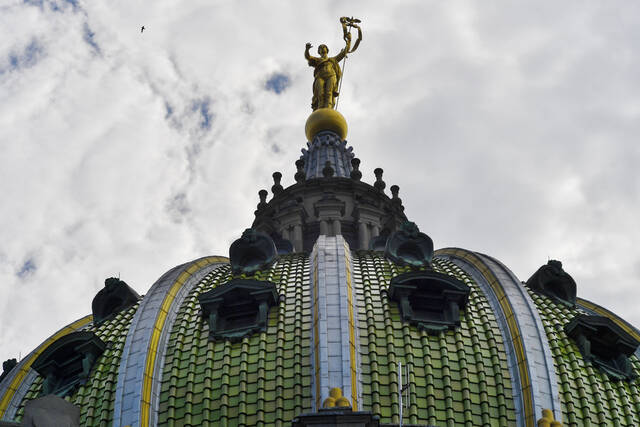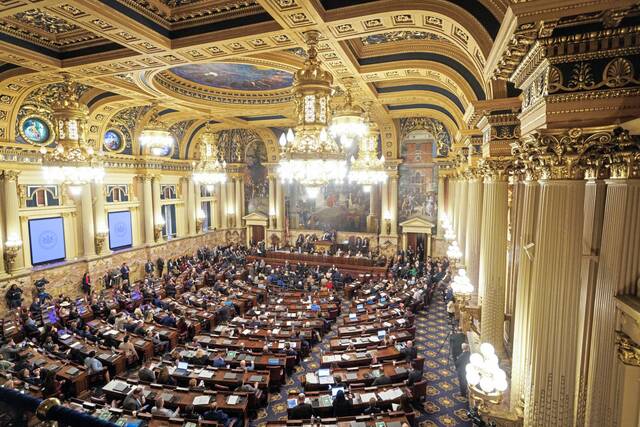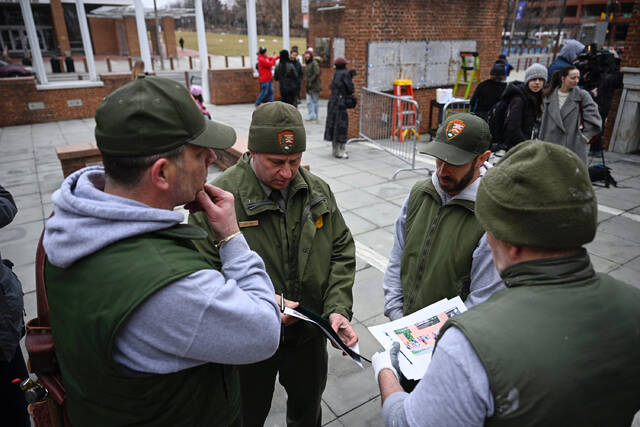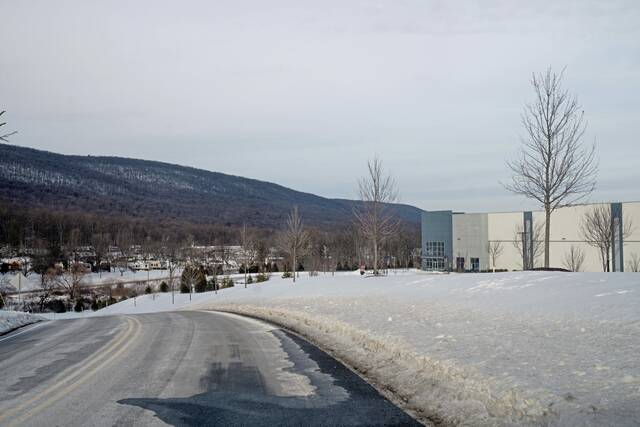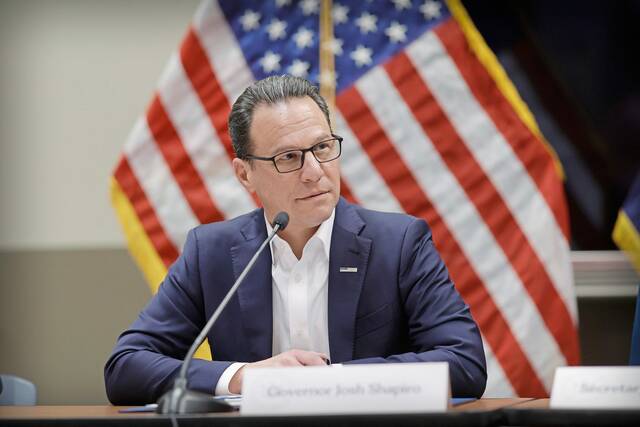Pennsylvania is one of just three states that has yet to adopt a complete budget for the 2025-26 fiscal year, according to an analysis by the National Association of School Budget Officers.
In North Carolina, lawmakers passed a stopgap “mini budget” over the summer to keep the government running while they negotiate a comprehensive spending plan for this fiscal year and next.
And, in Michigan, the 2025-26 fiscal year doesn’t begin until next Wednesday.
Pennsylvania’s fiscal year began July 1. On Thursday, the state’s budget impasse reaches 87 days.
While the state government has continued to operate during the impasse, billions of dollars in state funding to schools, counties and social service providers have been put on hold.
“The Republican and Democratic leaders in the House and Senate need to get together and narrow what are, frankly, pretty small differences at this point and put forth a budget that can pass in the House and Senate and get to my desk,” Gov. Josh Shapiro, a Democrat from Montgomery County, said last week during a stop in Pittsburgh.
Shapiro pointed out he introduced his budget proposal about 250 days ago. Since, he said, the Republican-controlled Senate has been in session in Harrisburg on fewer than 30 days.
“I think lawmakers should show up and do their jobs,” Shapiro said.
This week, the Senate added four session days to its calendar to “continue to position the Senate to effectuate a budget,” according to Kate Flessner, a spokeswoman for Senate Majority Leader Joe Pittman, R-Indiana. The Senate will have a nonvoting session Oct. 3 and voting sessions Oct. 6-8.
In a phone interview Wednesday, Pittman said he has been in nearly “constant communication” with members of his caucus as well as leaders in both chambers and the governor’s office in an attempt to broker a deal. The added session days are a “sign that we’re very serious about trying to find a path forward,” he said.
Pittman bristled at the suggestion Senate Republicans are sitting on their hands. He argued House Democrats “wasted months of energy on this supposed transit crisis that never came to be.”
Democrats initially balked at a Republican proposal to dip into a trust fund that provides money for transit improvement projects to help deficit-plagued transit agencies avoid steep service cuts and fare hikes. Instead, Democrats preferred increasing the share of sales tax revenues that would go to transit agencies — a plan they said would have created a source of additional transit funding for years to come instead of a one-time fix.
But after that plan stalled and a judge ordered the Southeastern Pennsylvania Transportation Authority to undo its initial round of service cuts, the governor’s office approved a request from SEPTA to use up to $394 million from the transit trust fund to help cover operating costs over the next two years.
The following week, Pittsburgh Regional Transit received approval to use up to $106.7 million from the trust fund to help cover its operating costs over the same span.
As for the ongoing budget talks, Erica Clayton Wright, senior adviser to Senate President Pro Tempore Kim Ward, R-Hempfield, said: “Landing an overall spending number is still a challenge.”
In February, Shapiro proposed a $51.5 billion spending plan that would have relied on using $4.5 billion in reserves to balance. It also included added revenues from proposals to legalize recreational-use cannabis and regulate and tax video gambling machines. Neither of those proposals has been approved.
Over the summer, the Democratic-controlled House passed a $50.6 billion spending plan, while the Senate advanced a $47.6 billion budget that maintained spending levels from last fiscal year’s budget.
Republicans had argued the Senate plan would allow state funding to start flowing immediately to schools, counties, social service providers and others while talks continued on thornier issues such as regulating and taxing video gambling machines. Democrats in a House committee shot down that plan, arguing the flat budget wouldn’t keep pace with rising costs.
Since then, Clayton Wright said, “I know we have gone back and forth, and the number is a little lower, but the governor gave us a tough starting point.”
“The ball is now clearly in the court” of Democrats, Pittman added. “The governor is the chief executive of the commonwealth. His own party controls the House of Representatives. He shouldn’t just be an intermediary in this process. They need to get on the same page.”
Senate Minority Leader Jay Costa, D-Forest Hills, said in a statement that Senate Republicans “have proven unwilling to negotiate in good faith, and it’s becoming clear that the suffering of Pennsylvanians means less to them than prolonging this process for cheap political points.”
Costa added that “now is the time to demonstrate that government can work for every Pennsylvanian by sending a common-sense budget to Gov. Shapiro’s desk. Let’s get this done.”
Counties, schools and other organizations already are feeling the strain.
In Westmoreland County, officials said they will lay off as many as 100 employees and could scale back some services starting next month if the budget impasse isn’t resolved. About $104 million of Westmoreland County’s $452 million operating budget comes from state funding.
The Pennsylvania State Education Association estimates public schools have missed out on nearly $3.8 billion in anticipated state funding payments over the past three months as a result of the impasse.
Pittsburgh Public Schools has been the biggest loser in Southwestern Pennsylvania, missing out on an estimated $61 million in state funding, according to the PSEA. The school district recently applied for and received a $28.7 million advance from the state to help it cover debt payments, according to spokeswoman Ebony Pugh.
Seven other districts in the region have missed out on at least $10 million in state funding so far, PSEA said: Armstrong ($14.9 million), McKeesport Area ($13.8 million), Butler Area ($12.2 million), Penn Hills ($11.5 million), Woodland Hills ($11.2 million), New Castle Area ($10.6 million) and North Allegheny ($10.1 million).


